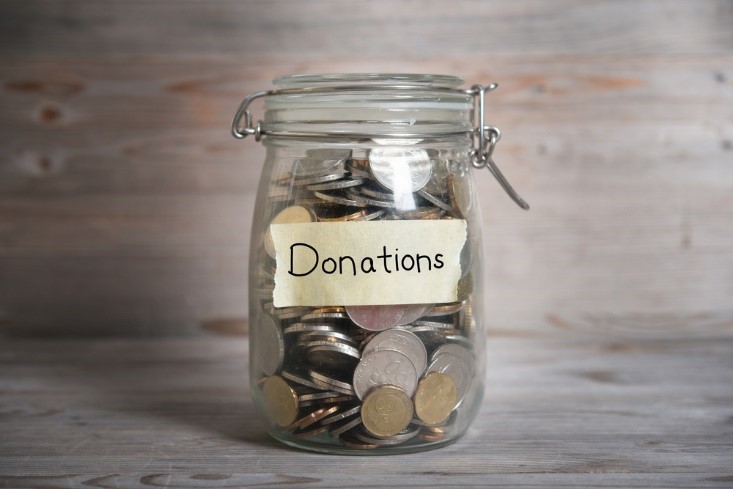How Giving Stuff Away Improves Your Financial Health
The average American owns no fewer than 300,000 possessions. While some of those possessions include essentials like your car, your refrigerator, and your bed, the vast majority of them are things you don’t even remember owning — items like your old baby clothes, broken computers, heirloom jewelry, and unused kitchen appliances. This stuff tends to be tucked into the backs of closets, stacked high in garages and attics, and taking up space in drawers, on countertops, and around any other possible storage space.
Americans accumulate so many belongings because we tend to associate wealth with material possessions. However, in truth, all that excess stuff is costing you real money every moment you keep it around. If you are striving to be financially healthy, you should start reevaluating your reluctance to get rid of your stuff — and start considering donating it all to charity.
Though it might seem counter-intuitive to give away your possessions for free while you are striving to become more financially secure, there are in fact several ways a pledge to be more charitable can improve your financial health. To motivate you to give, here are the most impactful ways donation betters your saving and spending habits.
Review Your Priorities — Financial and Otherwise
It’s not uncommon for people to begin their journey toward financial security with a resolution to be more charitable. To donate to charity regularly, you must have a reliable income with enough extra money to avoid jeopardizing your own lifestyle with your generosity. You should avoid giving away money and possessions without first considering how you spend your money — and how you must change to preserve your comfort and security.
Generally, this means you must begin by reviewing your priorities. Charitable giving is an exceedingly noble goal, but to reach it, you must be willing to sacrifice. For example, it might take you longer to afford that 60-inch TV, or you might have to let go of your dilapidated family boat. Ultimately, if giving to charity is important to you, you will be able to make it a priority without much effort, but the intentions you set to make your charitable contributions will help you understand your financial situation in new and critical ways.
Build a Better (and More Charitable) Budget
Once you are resolved to fit giving into your life, your first step should be to create a brand-new budget that includes your charitable goals. After settling on your priorities, you should assign portions of your income to different activities, including paying down debt, affording living expenses, and donating. Initially, you might not have much excess in your budget to give — but as long as you have overflowing storage spaces, you have plenty of opportunity to be charitable. Eventually, your budget and magnanimous mindset will allow you to make significant contributions to your chosen causes.

Be Ruthless in Your Giving
You might not realize it, but maintaining possession of excess items is a significant drain on your financial resources. First, you must acquire a larger home for cabinets, closets, and other convenient storage spots. You might even require the services of a storage facility, which requires you pay monthly fees to shelter items you might not even remember you own.
Therefore, you should avoid feeling overly sentimental about the items you needlessly keep around. Just because that old lamp was a gift from your mom is no reason to keep it buried in the back of your basement; just because you miss your kids’ toddler years is no reason to hold onto their old toys and clothes. The more stuff you clear out, the more money you save — the equation is that simple.
Start With Your Most Valuable Possessions
Donations of money and items are tax-deductible — but it requires a lot of little gifts for you to exceed the standard deduction. Instead, you can be certain to go beyond the standard deduction by making just a few big donations every year. The IRS allows you to donate and deduct up to 50 percent of your adjusted gross income, and the IRS uses current market values to assess deduction amounts. Therefore, you can maximize your yearly deductions with merely a few choice donations every year.
Plus, donating these items first allows you to rid your home of oversized, useless junk without the hassle of trying to sell it. The time and effort involved in trying to attract buyers to your used possessions is often better spent performing other tasks, like spending more hours at work or adding equity to your home. Donating occurs nearly as fast as you can find an appropriate charity, and often it will provide more value on your taxes than selling could with cash in hand.

